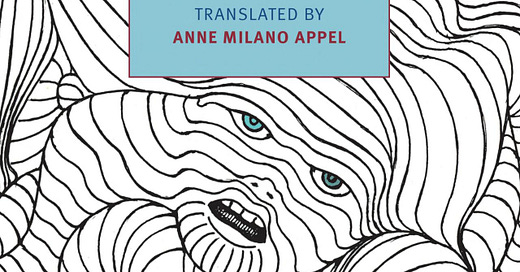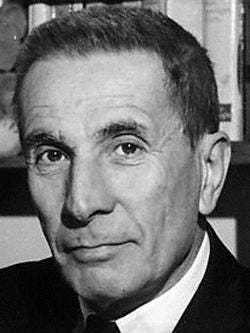"A moralizing scientific fable written in the spirit of Diderot"
NYRB's Edwin Frank discusses Buzzati's "The Singularity" with Stanford Prof. Robert Pogue Harrison. The book will be featured at Stanford hybrid event on April 17.
Stanford will be featuring an “Another Look” discussion of Dino Buzzati’s 1960 The Singularity on Thursday, April 17, in Levinthal Hall at the Stanford Humanities Center at 424 Santa Teresa Street on the Stanford campus. Register for the event, whether on zoom or in person, here.
In preparation for the event, Another Look director, Stanford Prof. Robert Pogue Harrison, interviewed Edwin Frank, director of New York Review Books and the founder of the NYRB series.
Robert Pogue Harrison: Congratulations on rescuing Buzzati’s remarkable novel from oblivion. Almost none of my literary friends in Italy had heard of it before I mentioned that a new English translation has recently been published by NYRB. Now it seems that Amazon Italy has made it available on demand, no doubt because of the attention the book is receiving in the USA. May I ask how this book first came to your attention?
Edwin Frank: I don't exactly recall who alerted me to the existence of the book. It may have come through our readers recommendations page, and I read it in the old translation.
Harrison: In Italian the book is called Il grande ritratto (“The Great Portrait"). The English title has little if anything to do with the original title. Why did you and Anne Milan Appel (an excellent translator) decide to call it “The Singularity”?
Frank: Buzzati’s title makes it clear that the book is, as so many of his books are, more about checkered love than science and consciousness, but the years since have given it an added dimension of significance, and Anne and I hoped to underline this with the title change.
Harrison: The story does not have a happy ending. Do you think that’s because some of the main characters are misguided in their ambitions, or because Dino Buzzati was wary about the direction the new technologies were headed in his time?
Frank: It is a curious instance of a moralizing scientific fable written in the spirit of, say, Diderot, taking on a dimension of prophecy, but it is not alone in that.
Harrison: Around the time Buzzati wrote The Singularity, Martin Heidegger declared: “No prophecy is necessary to recognize that the sciences now establishing themselves will soon be determined and regulated by the new fundamental science that is called cybernetics,” yet he was in fact prophetic when he said that. Do you think Buzzati was equally prophetic when he wrote this astonishing novel?
Frank: The unhappy ending also has a double valence: if it picks up on Wilde's “Each man kills the one he loves” (and only doubles down on the misdeed if, as in this story, he seeks to reverse that outcome), now we can see it as reflecting a fundamental misapprehension on the part of science about the nature of personhood, one that gives us that much more opportunity to misunderstand one another.
Don’t forget to register for the event, whether on zoom or in person, here.





